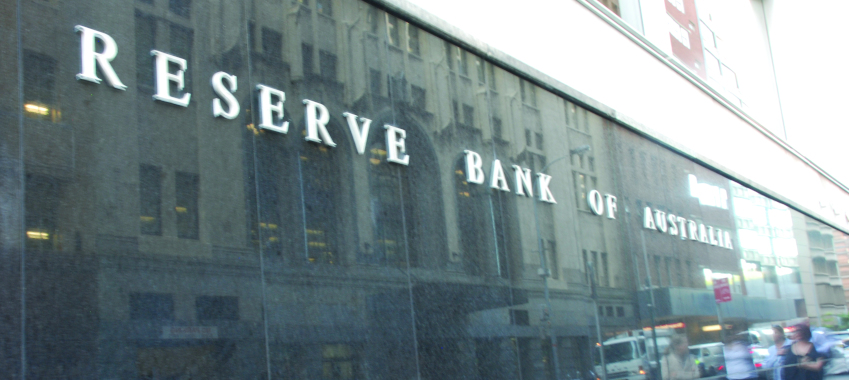
The Reserve Bank has confirmed its rate decision for November, as talk of a faster-than-expected rise has fired up.
The Reserve Bank of Australia (RBA) has decided to hold the rate at its current record low of 0.1 per cent, in line with its prior stance that it would not raise rates until inflation targets are sustainably within the 2 to 3 per cent range and wage growth picks up.
The last rate movement took place in November last year, when the RBA slashed it from 0.25 per cent and began broad quantitative easing.
However, recent inflation data from the Australian Bureau of Statistics (ABS), which showed annual underlying inflation has landed within the RBA’s target range, has sparked speculation around whether the cash rate could move sooner than the previous forecast of 2024.
Going off the RBA’s preferred measure for inflation, the trimmed mean for the consumer price index (which excludes extreme price rises and falls) rose by 0.7 in the September quarter, to be 2.1 per cent higher over the year – up from 1.6 per cent in the June quarter.
As a result, AMP Capital chief economist Shane Oliver and senior economist Diana Mousina have predicted the cash rate may rise as soon as November next year and end of 2022 at 0.5 per cent.
On Tuesday (2 November), RBA governor Philip Lowe stated the bank had adjusted its inflation forecast, now expecting a further, but only gradual pickup, with estimates hitting 2.25 per cent over 2021 and 2022, and 2.5 per cent over 2023.
But the governor insisted the central bank will not increase the cash rate until inflation is “sustainably within the 2 to 3 per cent target range”, which will require the labour market to be tight enough to generate material wages growth.
Unemployment is expected to trend lower over the next couple of years, with the RBA forecasting it will reach 4.5 per cent at the end of 2022 and 4 per cent at the end of 2023.
The wage price index is forecast to increase by 2.5 per cent over 2022 and 3 per cent over 2023.
Dr Lowe expects wage growth is likely to take time, stating the “board is prepared to be patient, with the central forecast being for underlying inflation to be no higher [than] 2.5 per cent at the end of 2023 and for only a gradual increase in wages growth”.
“The board is committed to maintaining highly supportive monetary conditions to achieve a return to full employment in Australia and inflation consistent with the target,” he said in his monetary policy decision statement.
“While inflation has picked up, it remains low in underlying terms. Inflation pressures are also less than they are in many other countries, not least because of the only modest wages growth in Australia.”
The central bank recently reaffirmed that it would not waver on the target inflation rate, despite acknowledging the effect of the low cash rate on property prices.
Finsure Group managing director John Kolenda has echoed the AMP Capital economists, stating an interest rate rise this time next year seems increasingly likely given the economic rebound from COVID-19, high vaccination rates and growing inflation.
“If the RBA moved earlier than expected with interest rates that would certainly have an impact on the economy,” Mr Kolenda said.
“There are many thousands of mortgage holders who have never experienced a rate increase, although I don’t expect significant increases when rates are lifted again.”
He added continued focus on the RBA also overlooks the likelihood of lenders lifting their rates independently of the central bank.
“Another factor at play could be the price of money that banks need to raise via the bond market which could see them lift rates out of cycle,” Mr Kolenda said.
“If the RBA turns off its term funding facility early next year, the banks still need to securitise billions of dollars through the bond market. If they’re already pricing in a rise, then the cost of funds will go up, which they’ll likely pass onto consumers.”
Meanwhile, aggregators have reported a flurry of activity.
Loan Market managing director Andrea McNaughton commented: “Whether it was Melburnians and Sydneysiders eyeing off the light at the end of the lockdown tunnel that fired up activity, the APRA changes – or a combination of both – lodgements rose across Loan Market in October.”
Across Australia, Loan Market and its BYOB (Bring Your Own Brand) brokers lodged a total of $3.04 billion, 42 per cent more year-on-year.
Ms McNaughton believes that the Reserve Bank will be waiting to see the impacts of the new serviceability buffer, before considering a cash rate change.
Meanwhile, Mortgage Choice saw borrowers respond to changes in the market by fixing part or all of their home loan interest rate.
Data from the company showed 40.8 per cent of loans had a fixed component in the month of October, while 38 per cent of loans to owner-occupiers were for refinance purposes.
“We’ve already started seeing a lot of small rate tweaks on home loan interest rates, mainly on long-term fixed rate home loan products and some discounting on variable rate home loans, but today’s announcement suggests that more significant changes are on the horizon,” Mortgage Choice and Smartline chief executive Susan Mitchell said.
Meanwhile, the RBA has also discontinued its target of 10 basis points for the April 2024 Australian government bond, while choosing to continue its bond-buying program at the rate of $4 billion a week until at least mid-February.
“The decision to discontinue the yield target reflects the improvement in the economy and the earlier than-expected progress towards the inflation target,” Dr Lowe explained.
“Given that other market interest rates have moved in response to the increased likelihood of higher inflation and lower unemployment, the effectiveness of the yield target in holding down the general structure of interest rates in Australia has diminished.”
[Related: Owner-occupier lending falls for 4th month: ABS]
